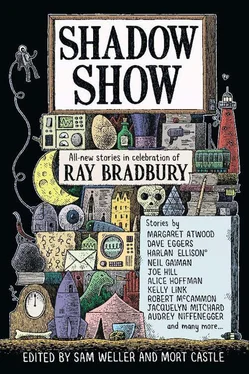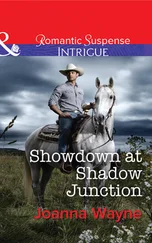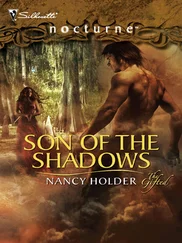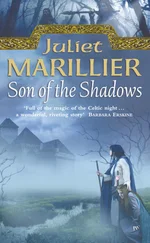“They work you hard,” he said, rolling up his sleeve to show me his upper arm that looked like it had an apple under the skin. Then he kissed me on both cheeks.
“Will you bring Nora tonight?” he asked me, because he knew from the letters I was seeing Nora, and then Auntie Maggie came running, giving me a look like I made the milk sour.
Reb Jaworsky got drunk that night and toasted Jackie and the other boys for fighting like the Maccabees to save his people and all good people; and the whole neighborhood went in and out the doors until my mother just wadded up the newspapers she always laid down to keep the linoleum clean and sat down on the piano stool. She played old songs like Chopin and waltzes, and new songs about the girls who waited for boys who never come home or boys who did. Nora came when she got off work at the store where she sold perfume.
It happened then. Not long after she got there.
Sure, we had some wine to drink. Jackie said he was used to wine by then. The army gave you beer for free. But I wasn’t drunk. Though Nora was an Irish girl, Jackie gave her our blessing, a kiss on each cheek. “You be good to my brother until I come home,” he said. He nodded at Joanie, who was wearing high heels, though she was only in the sixth grade. “Little Joanie,” he said.
“You’re that handsome in your uniform,” said Nora. I was jealous.
Nora had black hair cut real short the way girls were starting to do then, and the kind of eyes some Irish have, like a pond turned over after a storm. Angry at me because I was stuck on an Irish, my mother still melted when she saw those eyes. Joanie has them, too.
Nora is Sister Mary Dominic now, a Benedictine that’s cloistered. She could be Sister Eleanor Finnian these days if she wanted, but she does not want to. She can only see her sisters and her mother and father twice a year through the bars. She went in the convent when she was eighteen, that same spring. But then, she was just a beautiful girl, who loved a laugh and a dance—a girl among five sisters, whose father thought she’d never find a husband, there being so many Finnian girls. She never said a strange word to me before that night or since then. Just, when we went to her veiling ceremony, years later, with all Nora’s family, and saw her married to Christ in her beautiful bridal dress, she looked straight at me, not at her sister. But that one look felt as though she’d grabbed the flesh under my chin between forefinger and thumb and squeezed.
I knew she remembered the night at the party.
She remembered that something had happened. It scared her, like a tap inside her ribs that wasn’t her own heart. That’s what she was telling me at her veiling, not one word said.
And while I’m pretty sure Nora didn’t know what come out of her mouth, she’d seen my face and Jackie’s and what we did afterward. That moment must have slithered over her, the way static electricity will run up your arm just before a storm. For what she said, it wasn’t in Nora’s voice. Nora’s voice was light as a laugh, tilted up with a bit of a flirt or a tease. That voice was slow and dead, and it come like in a trance or what have you, from somewhere else, long ago.
I know as sure as I’m sitting here that was why she took holy orders. Her mom was probably glad of it—raising a nun being almost as good as raising a priest, though not quite. But Nora would have a pack of kids now and a man of her own if it hadn’t been for that moment at the party. She wasn’t no pale, praying kneeler, Nora, but a girl born for mischief. Kathleen was more religious, even Joanie, my wife. Something happened that she couldn’t name, no more than we could. And if she knows the half of it, like I do, she must wake up in her iron bed at night all ice and sweat like me, and she must beg the merciful Lord for his protection. I think of her alone there, and I pray she don’t know all I know. I hope it’s just a sense she has, like a child’s memory of a grandparent who died generations ago. It wasn’t a thing Nora deserved. Or anyone. She was a good girl.
It started when Jackie fished in his pocket and took out a tiny cross, one he’d carved on a base of apple wood. Like I said, he’d been using the Barlow knife for more and more intricate carvings, even before he went into the service; and he went on doing it at night in the barracks to pass the time. He had pockets full of whittlings—tigers and linked chains, little trees, a cup and teapot he’d sent Auntie Maggie, and little cowboys on horses for the little kids on the block. It was natural to him, being an artist, kind of, like he was. He did it as quick as you or me would deal out a hand of cards. That he fetched out a cross instead of a flower or a star for Nora was a coincidence. As far as we knew, Nora soon would be as wild as Patricia. At least that was what I was hoping. I was hoping I’d get me more than a kiss one time—a feel at least. Maybe Jackie hoped so, too. Girls then had a soft spot for boys headed for what might be a young death. Still, a cross was what it was, with clefts and flourishes and even a small blunt image of the body of Christ.
Jackie gave Nora the cross. She reached for it eagerly, but then she closed both her soft white hands tight. She looked down at them. Her nails were dug into her palms, like claws.
And that voice-that-was-not-Nora said, “The man who owned the knife was not dead. He died of thirst. It took three days for him to die.” Jackie jumped and the little carved cross fell between them to the carpet. “The bone in that knife’s handle belongs to the earth. It is a wolf’s bone. Zora’s.”
Not meaning to frighten Nora, I half yelled at her, “What? Zora or Nora?”
I was hoping that what she’d said was just her own name. I knew it hadn’t been. What I was thinking about, of course, was of the old goddess of midnight and dawn, the dark woman Zoraya, that Nana and Grandma Sala told us about when we were babies.
Nora misunderstood me. There was laughter and talk overlapping itself all over.
“Who’s Zola?” She laughed. “Is that your talk for Nora?”
She took a cold beer out of the pail of ice—glancing at her parents first to make sure they didn’t see—and bent down to pick up the cross. “This is a beautiful small thing you’ve made. Thank you, Jack.” She leaned forward as if to give him a hug around the neck, as thanks, the way a girl will. But Jackie’s face was white and moist as new bread. He stiffened and pulled back from Nora and said not a word. For just a second, he and Nora looked like their eyes were bound together on a wire. The sweet, familiar grin melted from Nora’s face. A blush spread over her neck like someone had spilt a pot of pink woman’s face paint. She took hold of the hem of her dress and spun off in that dancing way she had, making sure we saw the turn of her fine legs in their cotton hose. “See you later, boys,” she called back to us.
“You heard it, too,” Jackie said to me then, quiet, so no one under all the gabble could hear him but me. He took the knife out of his pocket and told me to take it. I wouldn’t. I held up both hands like a baby that’s been burned. He said Go, Jan, give it to the Field Museum for nothing. I said I would tell Papa to give it to the Field Museum, and for him to just put it down. We knew Papa wouldn’t. Neither one of us knew if the knife was cursed before Jackie used it to break into the tomb—cursed by our soldier ancestor who stole it off a dying boy—or only afterward. But we could tell the curse had jumped from the knife into Jackie, no matter how many crosses he whittled. We could tell it was so strong that it spread to Nora for a minute. Damned if we knew why. Maybe it was layers of sin, old and new, none of them really Jackie’s fault, waiting for the knife to come out of the box and spring on him, making him different, little by little, taking pieces of him that were good and turning them wrong.
Читать дальше



![Lord Weller - Ритера или опасная любовь [СИ]](/books/421202/lord-weller-ritera-ili-opasnaya-lyubov-si-thumb.webp)








